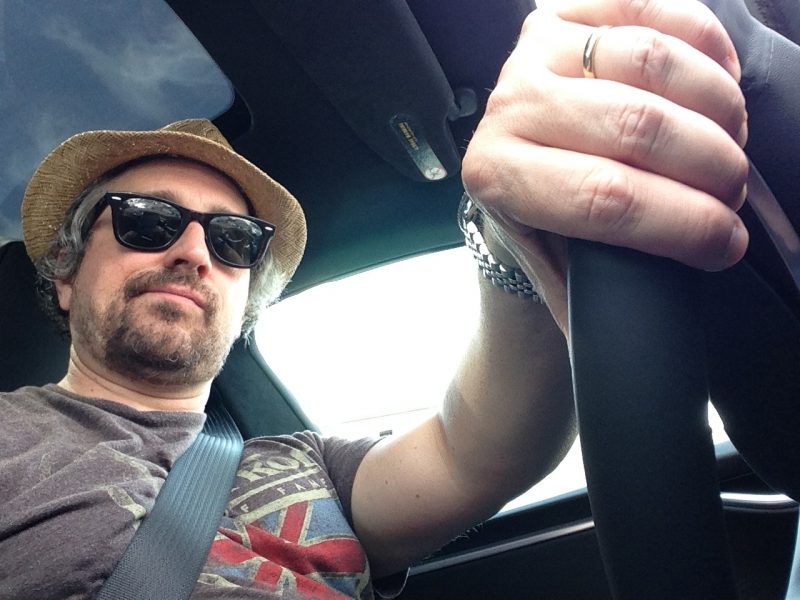
- The car isn’t actually moving.
- source
- Matthew DeBord/BI
The National Transportation Safety Board has released some additional details about a fatal Tesla Model S Autopilot crash in May 2016.
One of the findings was alarming. According to the NTSB, an agency that rarely investigates auto accidents and usually spends years delving into plane crashes, during the last 41 minutes of the driver’s trip, the Model S was in Autopilot for 37.5 minutes, and he had his hands off the wheel for a total of 37 minutes during the time the car was in Autopilot.
It also found that the Model S displayed the visual warning “hold steering wheel” seven times during the trip. Six of those were followed by “auditory warnings.”
As it turns out, I gathered some experience with Autopilot. Last year, Tesla loaned me a Model S P90D with the latest everything. We used it to take a trip to the Catskills, in upstate New York. It was quite an adventure, and the car performed well, but …
What was Autopilot really like?
It was very advanced cruise control – and to Tesla’s credit, it has become more advanced since I explored it. When it’s fully activated, auto-steering allows the driver to take their hands off the wheel for short periods, although Tesla has repeatedly stressed that drivers shouldn’t do this. And when you activate the technology, a warning presents itself on the instrument cluster.
These are the warnings that the driver, Joshua Brown, may not have followed. To address that issue, Tesla has updated the software so that if you ignore the warnings, Autopilot will deactivate for the remainder of your journey.
But here's the real deal: Warnings or not, you absolutely, positively shouldn't take you hands off of the wheel. Ever.
The technology is very good, but after using it for only about 15 minutes on the highway, it was abundantly clear to me that Autopilot is a long, long way from the magical experience of a car driving itself.
Or even steering itself.
At Business Insider, we had an early look at Autopilot, right after it was released in a software update last year. I went for it and avidly took my hands off the wheel. But we were in the vehicle for only a short period of time.
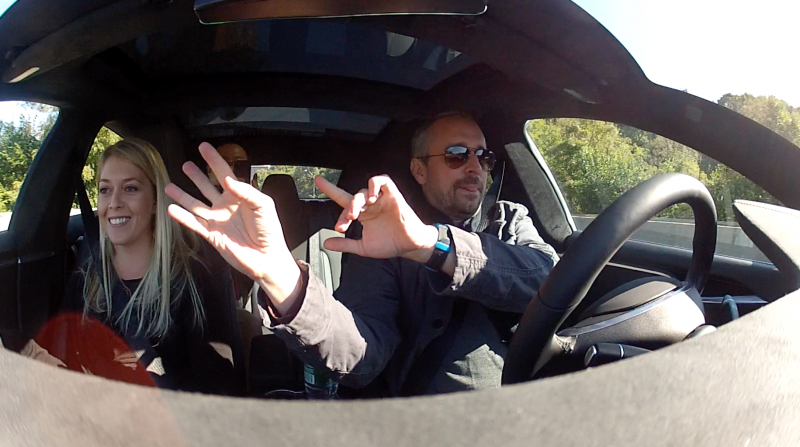
- Don't do this.
- source
- Benjamin Zhang/Business Insider
As we used Autopilot for a longer drive, however, it rapidly became obvious that the system does exactly what Tesla says it will do: guide the car through its lane, change lanes, and monitor surrounding traffic to avoid collisions and activate braking.
It doesn't do anything else.
Hands on the wheel!
My opinion of Autopilot is entirely my own and not based on exhaustive or remotely scientific testing. But I now think that the accidents that have occurred when the technology was activated were the result of drivers not making a rational evaluation of Autopilot's capabilities.
I couldn't get comfortable keeping my hands near the wheel, or "hovering" them close by. I wanted my hands on the wheel at all times, and I think that any reasonably experienced driver should feel the same way.
Beyond that, Autopilot requires monitoring. You must pay attention to what the system is doing to determine if its sensible to leave it on. It actually demands more, not less, driver attention.
I've watched some of the Autopilot videos made by Brown prior to the fatal crash. It looks to me like he was trying to push the envelope on what the system could do, consistently placing himself in a position to have to get his hands back on the wheel - and probably also on the brakes, deactivating Autopilot - to retain control of the vehicle.
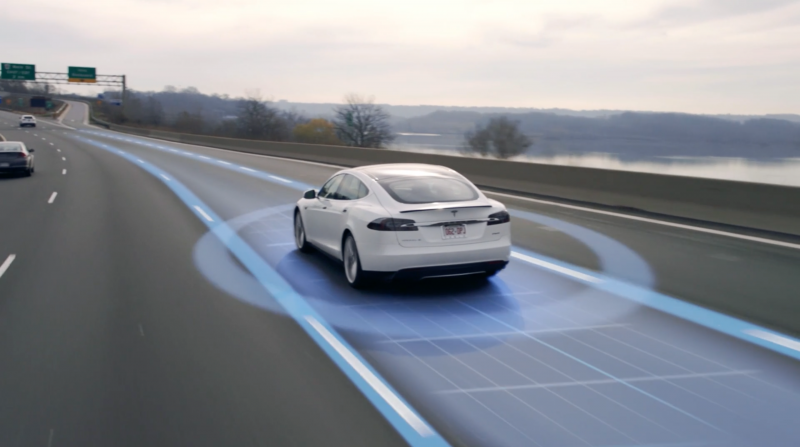
- Autopilot in action.
- source
- Tesla
I've been driving for over 30 years, and because of what I do for a living, I get to sample all of the latest and greatest automotive technologies. I don't consider myself an expert driver, but I do consider myself able to make an assessment of what one should and shouldn't do with all of the advanced cruise-control systems in the market.
But the thing is that cruise control has been with us for decades. Most drivers understand what it can and can't do. And although Autopilot is the most significant advancement in cruise control that I've ever seen, it merely points at a distant moment when drivers will be able to switch off their attention and trust that their car's brain, sensors, and radars will make better decisions.
I'm baffled
Frankly, I'm baffled that anyone would misunderstand this about Autopilot, even if Tesla has gone too far in the direction of talking up Autopilot as a preview of the future.
You're in control of your own evaluations of new technologies. When you're talking about a vehicle of several thousand pounds hurtling along a roadway at over 60 mph, then a simple, nearly intuitive grasp of the physics would tell you that your attention should be focused on Autopilot, with hands on the wheel, more so than with a vehicle that uses less advanced tech.
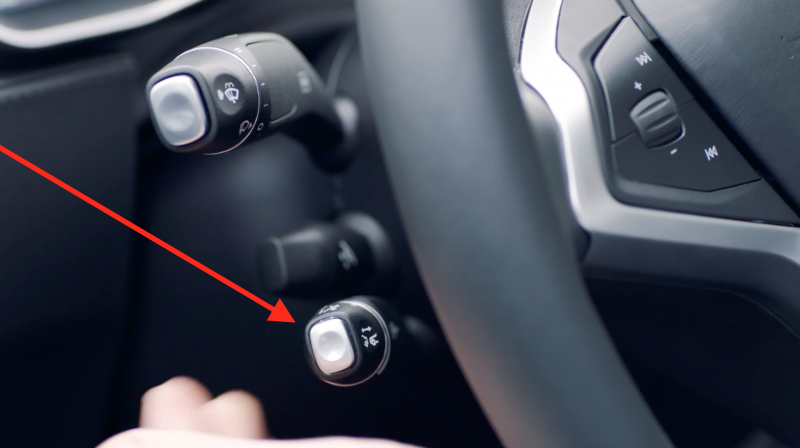
- Autopilot is activated by pulling this stalk toward you twice.
- source
- Tesla
If this sounds like I'm blaming owners for how they handle Autopilot, rather the holding Tesla accountable for releasing the tech in a "beta" version and using the owners as a test group, well, so be it.
You're not a sheep, and you don't have to be a guinea pig.
You're a driver in charge of your vehicle, and if you have a license and any time behind the wheel, then you ought to be able to figure out what's safe and what isn't - particularly if you've been informed by Tesla that you are assisting in perfecting a new technology.
When I reached out to Tesla for some additional insight into how it educates owners on Autopilot, the company noted that its owner's manual contains a list of adverse circumstances that, in my reading, would compel any reasonable driver to deactivate an old-school cruise-control system, much less far more advanced yet still unproven tech.
It's a car. You're not going to be relieved of the responsibility for driving it anytime soon.
Tesla also stressed that Autopilot isn't actually about the car driving itself. It's about making driving safer.
"We are continuously and proactively enhancing our vehicles with the latest advanced safety technology," a Tesla representative said in a statement at the time.
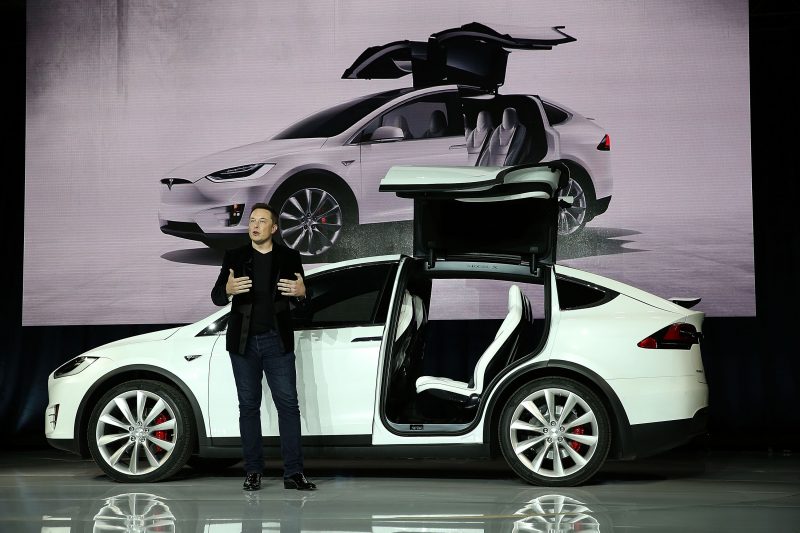
- Tesla CEO Elon Musk speaks during an event to launch the new Tesla Model X crossover SUV.
- source
- Justin Sullivan/Getty Images
The rep added:
"This is why we've taken the approach of including Autopilot hardware in all of our vehicles and continually advancing the software through robust analysis of hundreds of millions of miles of driving data, behind-the-scenes iteration, and over-the-air activation of features already proven to be safer on the net over tens of millions of miles.
"[T]oday's Autopilot features are designed to provide a hands-on experience to give drivers more confidence behind the wheel, increase their safety on the road, and make highway driving more enjoyable. ... Autopilot is by far the most advanced such system on the road, but it does not turn a Tesla into an autonomous vehicle and does not allow the driver to abdicate responsibility."
What should Tesla do?
In fairness, Tesla has been saying this all along. It is drivers who've taken their experience with the technology too far. But what Tesla owners now need to do is remember that, although its vehicles are impressive, they aren't sentient rolling androids. We are still a driving species. And we will be for a while.
This column does not necessarily reflect the opinion of Business Insider.
Dit artikel is oorspronkelijk verschenen op z24.nl